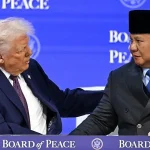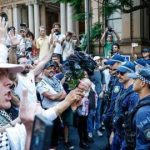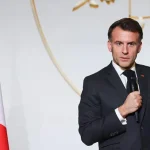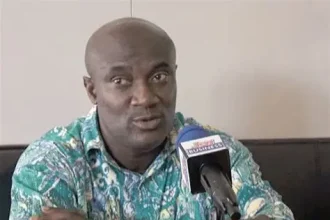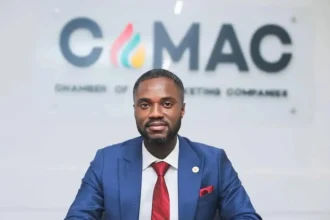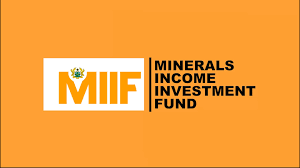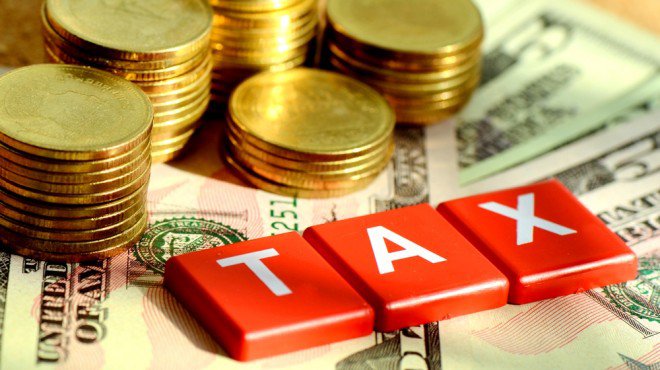The move by Daniel Duku, a former Chief Executive of the Venture Capital Trust Fund (VCTF) who is standing trial for causing financial loss to the state, to pay GH¢15 million as restitution to the state is in limbo.
An Accra High Court yesterday rejected an agreement reached between Duku and the Attorney-General on the terms of the restitution.
The presiding judge, Justice Anthony Oppong, a Justice of the Court of Appeal, with additional responsibility as a High Court judge, was not happy with the agreement as it currently stood and, therefore, directed the two sides to go back and rewrite it in conformity with what he described as best practices.
Amount not enough
Duku and two other accused persons — Irene Anti-Mensah, who was his Executive Assistant at the VCTF, and Frank Aboagye Mensah, Anti-Mensah’s husband — had decided to pay restitution to the state.
Per their actions, the three accused persons want to plead guilty to a total of about 42 charges levelled against them and make amends by paying the money they allegedly took from the state, in line with Section 35 of the Courts Act, 1993 (Act 459).
Such a move, although will make them convicts, will help them escape custodial sentences.
However, at yesterday’s hearing, Justice Oppong said the GH¢15 million being offered by Duku was not satisfactory, as he (judge) had personally calculated the amount on the charge sheet and realised that Duku caused financial loss of more than GH¢40 million to the state.
“We are dealing with state resources. The restitution must reflect the GH¢40 million, so that the state does not lose the money,” he said.
The Director of Public Prosecutions (DPP), Mrs Yvonne Atakora Obuobisa, explained to the judge that the GH¢40 million was the amount all the six accused persons had been accused of stealing from the state.
She also said the amount stated on the charge sheet included the principal and the interest.
According to the DPP, the principal amount Duku allegedly stole from the state was GH¢9 million, while the interest was GH¢13 million, making the total of GH¢22 million.
“We have maintained the principal; it is the interest that was negotiated, and that is why the amount is GH¢15 million,” she said.
Plea bargain or not?
Justice Oppong also pointed out that on the face of the agreement, there was no indication that the accused persons fully understood what they had signed.
He said the agreement was basically a plea bargain and, therefore, the accused persons must be made aware of the charges which would be dropped against them, whether the prosecution, as a compromise, would drop other charges, the fact that they would not have a right to appeal, among other issues.
Justice Oppong said plea bargain was novel to Ghana and, therefore, the ideal thing was for the prosecution and the lawyers for the accused to follow best practices which pertained in other countries, such as Kenya, which had plea bargaining as part of their laws.
The presiding judge was also not happy with a clause in the agreement that allowed certain properties that had been seized from Duku to be released in order for him to sell to offset the GH¢15 million he had offered to pay to the state.
According to the judge, the agreement did not reveal the value of the properties, which was crucial for the court in exercising its discretion in upholding the agreement
In response, Mrs Obuobisa explained to the court that what had been provided for under Section 35 of Act 459 was not a plea bargain.
“Plea bargaining agreement is not known to Ghana because there is no legislation on that. Such legislation is under consideration. This agreement is under Section 35 of Act 459,” she said.
She said unlike a plea bargaining agreement, an accused person who activated Section 35 of Act 459 had a right of appeal.
Again, she argued that Section 35 of Act 459 was not novel, as stated by the court, and that there were many decided cases in Ghana to that effect.
She further argued that Duku and the other accused persons were fully aware of the import of Section 35 of Act 459 because it had been explained to them by both the prosecution and their lawyers during the negotiations.
It was, therefore, her case that an agreement under Section 35 related to the terms of the restitution, compensation and restoration and not the other things as stated by the court, as that would amount to a plea bargaining agreement which was not part of the laws of Ghana.
Best practices
Counsel for Duku, Mr Addo Atuah, supported what the DPP said and said his client was fully aware of the consequences of activating Section 35 of Act 459.
“What we have agreed covers all angles of Section 35 of Act 459,” counsel said.
Justice Oppong, however, insisted that the agreement must be done in conformity with best practices, as pertained in Kenya.
The DPP decided to take a cue from the presiding judge, but further argued that whatever new agreement would be presented to the court must still be in accordance with Section 35 of Act 459.
Hearing continues on June 22, 2020
Section 35 of Act 459
Under Section 35 (1) of Act 459, a person accused of an offence which has caused “economic loss, harm or damage to the state or state agency may inform the prosecutor whether the accused admits and is willing to offer compensation or make restitution and reparation for the loss, harm or damage caused”.
Section 35 (2) of Act 459 states that when an accused makes an offer of restitution, the prosecutor shall consider whether the offer is acceptable or not and inform the court.
In the event the offer is not acceptable to the prosecution, the trial shall continue, but if the offer is acceptable, the accused person will plead guilty and the court will convict him on his own plea.
When passing sentence, the court will then order the accused to pay the restitution based on conditions set by the court.
However, per Section 35 (7) of Act 459, if the accused person fails to fulfill the conditions set by the court for the payment of the restitution, the court shall pass a custodial sentence on him.
Alleged scandal
Duku was the CEO of the VCTF between 2010 and 2015.
The other accused persons are Richard Lassey Agbenyefia, a former Member of Parliament for Keta and former member of the Board of Trustees of the VCTF (the board); Kofi Sarpong, an investment officer of the VCTF, and Charity Opoku, also known as Charity Ameyaw, who was an accountant at the VCTF.
They have been variously charged with 86 counts of wilfully causing financial loss to the state, abetment of crime, stealing, defrauding by false pretences and issuing of false cheques.




